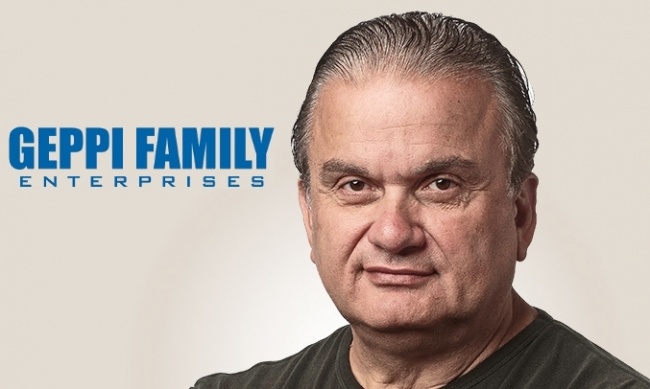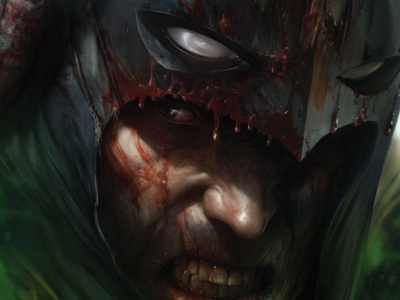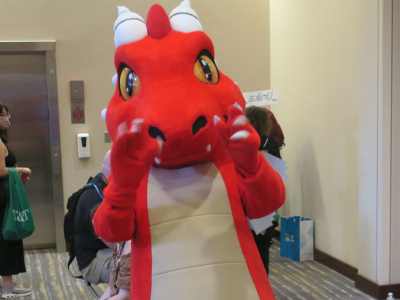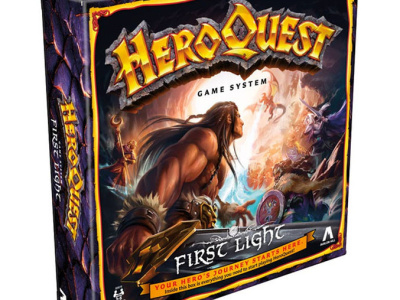As the coronavirus crisis has taken hold, CEO Steve Geppi of Geppi Family Enterprises, the company that owns Diamond Comic Distributors, Alliance Game Distributors, Diamond Book Distributors, and numerous other companies, has suddenly become more visible than he’s been in decades. We caught up with Geppi on Monday, May 11, for a wide-ranging interview about the current situation and his plans for the future.
In Part 1 of this five-part interview, below, we ask about key decisions made at the end of March: to shut down most functions at Diamond and Alliance, and to delay payments to vendors.
In Part 2, we talked about another surprise: what happened to Diamond’s relationship with DC, its second largest supplier. In Part 3, we talked about how GFE companies will handle the product caught in the pipeline between order and shipment during the shutdown, and Diamond’s new competitive landscape. In Part 4, we talked about what will happen if there’s rolling chaos, with regional shutdowns and openings across the country, and plans for Free Comic Book Day. And in Part 5, we talked about the reorganization of Geppi’s companies into Geppi Family Enterprises, his plans for the future of his companies, and for his ownership of them. The interview was edited for length and clarity.
ICv2: We'd like to ask about some of the decisions that were made early on, back in March, when things started to go south. Why did you shut down all of the Diamond and Alliance warehouses, when some of them theoretically could have continued to operate? Some were under shutdown orders, but they wouldn't have all had to be shut down at the same time. Why did you shut them all down?
Steve Geppi: Knowing the comic stores are very competitive, …we felt we had a fiduciary responsibility to keep the playing field level.
That's why it was upsetting when DC announced they were going to come out. We had already told DC there was only a maximum 20 percent of the customers open at the time, …and quite frankly, we got a lot of positive response, particularly from stores that knew they were going to be closed for a period of time, like California.
I'd use an analogy, and this may not be the best analogy. It's not all about speed of delivery. It's about content. If Netflix says tomorrow that the final episode of The Blacklist that everybody's waited for …they release on Netflix only in the Northeast, knowing that whoever watches it's going to spill the beans to everybody in the rest of the country. There's an element of that, but more so, the nature of got to have it, want it first.
We felt like if we just opened in fractional areas (and keep in mind, it's a very small percentage we were hearing that were open), it wasn't worth opening that can of worms to piss off everybody else, and I think we made the right decision, because as it turns out, you've seen some of the letters, some of the accolades, "We'll stick with Diamond." I'm sure there's been some opposites to that, but we think (unless you tell me something I don't know), by and large, most people were happy to at least be on a level playing field, as opposed to behind.
Now, in the case of DC shipping three or four weeks worth of very small quantities… When they started shipping on April 27th, they had five books, three of which were second or third printings. The next week was seven, and then they said two and two. Over four weeks, only 16 books were coming out. When we re‑emerge on the 20th, we're going to catch up to DC's.
Marvel is actually going to start a week later. They're doing slow, a few periodicals, then a few graphic novels the next week, vice‑versa.
Long answer to your question, I'm sorry. We felt like it was the right thing to do. If we were guilty of anything at that time, it was the communication wasn't as rapid as it could have been. That was because we didn't quite know what was right at the point in time, so we had to rally around the flagpoles, get some input as best we could from retailers, and make a quick decision.
Fortunately, I think we made the right decision at the time. When we did our projections for resuming shipping for May 17th (or for the week of May 17th, shipping, arriving May 20th), it's almost looking like we had a crystal ball. That date's looking really good now, because A, we've confirmed it, and literally, within the last week, we were qualifying it. I would say things like, "Barring unforeseen occurrences," and that's technically still true, something could happen.
We're feeling pretty good now. We're bringing people back almost immediately to get ready. You can't bring them back the day of. That was the rationale that went into it.
We understand what you're saying about the periodicals, but what about Diamond Book [Distributors]? The book business was still functioning. And on the games side, there weren't as many new products coming out, a lot of that's a backlist business. Other distributors had some of their warehouses opening, servicing the stores that could service customers, so why apply that same rationale across those other two businesses?
Much to the chagrin of [GFE Chief Revenue Officer] Dan Hirsch, who was an advocate of where we could, we should ship, we made that decision under the auspices of equal treatment. Keeping in mind that, as you point out, in the case of Alliance, they aren't the only game in town, so to speak, no pun intended. We have competition.
We would get a call from, let's say, Wizards of the Coast about the next release, and needing to know because they were actually saying that if we didn't give them the go-ahead that we were going to ship the next release of Magic out, they might have given our allocation to somebody else, which would have been suicide. We said, "Yes, we will." Then when we said that, they then for whatever reason, they delayed it. I guess figuring just like, keep in mind, the idea is how many stores?
Whether you're willing to ship or not, you still have this issue of who was open and who was not. Then beyond the retailer, even if they're open, there was an edict from the government, from the officials, the municipalities saying consumers were technically only supposed to go out for essentials.
For example, if you got pulled over, whether intentionally spot‑checked or inadvertent because you were speeding, and they said, "Where are you going?" if you said you're going to get milk or medicine, you were cool. If you said you were going to go get comic books or games, you might not have been cool. There was factors like that. In the grand scheme of things, keeping in mind where we're located for Alliance. Pennsylvania, where we have Red Lion now, was a lot more strict.
Indianapolis at the time was a little bit. In comics, you had basically Plattsburg, New York, and we know what’s going on there, and then Mississippi, you had Olive Branch, [for Alliance] Visalia in California, again. It seemed like, to us (and we knew we had competition, and we had to take that risk), that we were better off playing it slower or like we did with Diamond, understanding that there was a difference in the gaming market. We felt, again talking to the customers, that we were not inhibiting them. Those who were wanting to get product, we had to take the risk that they would buy some of them from somebody else. We weren't, in effect, stopping them from getting a hot release, but we were trying to be equal.
Then you made a decision to stop paying invoices. Why did you do that?
Like everybody else, we were crippled on cash flow, because all of a sudden, we go from shipping many millions of dollars a week to it's a couple hundred thousand a week.
What we did is we went to our bank (which fortunate for us, we had just switched banks to the biggest bank in the country, JPMorgan Chase), and we laid out a plan that anticipated if we didn't ship out books until May, could we pay our vendors in full? We did that under the existing line of credit, with no need for a dollar more. Of course, we had to tell the banks, because they were going to see collateral going down every time we got money in and paid down the line, we'd also have no new invoices to raise the collateral. We had to tell them (which they knew was going to happen anyway, just because of what was going on in the world) that the collateral will be going down, and the line of credit would be needed, greatly utilized, to the point where it would be getting up toward wherever our limit was. The bank was extremely supportive and comfortable.
Then we went, and the whole time we did this payment plan, we were able to be applying for PPP money, which we got, and is helping. There's even another thing called the Main Street money.
We, like everybody else, got hit tremendously on cash flow. We had to lay off… I should say furlough, because they're still employees, just not working; in some cases, they're getting more money being home. We had to furlough 507 people, so we're reducing payroll.
We're doing all those things, but we didn't have the wherewithal, short of an infusion outside or from me personally, to do it.
[Marvel CEO] Ike Perlmutter was one of the first calls I made. The first words out of my mouth to Ike were, "Ike, you are going to get paid in full, but let me tell you how this going to work." He was the biggest call, because I figure if anybody's going to be tough, as you know, Ike's going to be tough.
He couldn't have been more accommodating, because he gets it. He understands, no matter who you are, I am sure Disney and other companies have similar issues. We did what we could. We relied on the fact that our history of paying our bills was impeccable.
They would now not be happy about it. If you watched the show the other night between me and the vendors (on Dan Shahin’s Comic Book News channel), [Fantagraphics Books Publisher] Gary Groth cracked a joke and said, "Yes, of course, I'm always happy when somebody calls me and says I'm not going to get paid." But they swallowed the pill and gave us the ability. Remember, in addition to paying for whatever books that were out there (you should have had the money, you were already paid for those books on the previous weeks), we were now having to look out for the retailers, too, and find ways to help get them through it while they had no income. That was basically the rationale on what happened.
Diamond was obviously hit by the fact that your revenues were interrupted, but it seemed like your reserves and your availability of credit ran out almost immediately. That was surprising.
It didn't run out immediately, it had to be allocated. What we had was designed with the unknown of when we would ship again. You couldn't take the chance to just pay all the bills and then be to the point where we fully utilized our availability and not have any idea.
If we talked the publishers into taking, just like they would ship, graduated shipments, we would have the ability to carry this money that we had already, without going to ask the bank for any more.
We didn't know at the time we were going to get the PPP. Basically, we were saying, "We want to stretch this money, like we're stretching the comics, over a period of time with no knowledge."
Now, we have a better knowledge. Now, we know we're shipping on the 20th. And hopefully, it won't get interrupted again, so that the money that we've allocated to pay will put us in a more comfortable position to not only pay for the product that we've promised that were already received, but to continue to bring back employees and pay them, because our volume's going to be reduced one way or the other.
The other issue was that the ability to tell everybody at once was almost impossible. Like I said, I called Ike and called DC. We called Image, Dark Horse, and IDW, but you know how that works. The minute you tell one, no matter how much confidentiality you swear, it's going to be on the front page the next day. You can't possibly simultaneously call everybody, so you have to put out that notice, and some people were unhappy because they got it that way and they didn't get it in a phone call. The quickest way we could do it unilaterally and equally was to say, "All right, we called the big guys, and then we're going to send out an official notice, and be ready for the calls."
We invited them in email, "Please call us to see how it affects you directly." We did it that way. So far, it's worked out. We feel now more comfortable about our ability to say, because A, we've got the PPP money in, we're anticipating hopefully participating in the Main Street Program, and we've also got books shipping again.
Click here for Part 2.

Key March Decisions: Shutting Down and Delaying Payments
Posted by Milton Griepp on May 21, 2020 @ 3:24 am CT
MORE COMICS
From Dynamite Entertainment
August 8, 2025
Here's a preview of Space Ghost #1, published by Dynamite Entertainment.
Dark, Erotic Manga Based on Short Story by Edogawa Rampo
August 8, 2025
Maruo brings his signature “erotic grotesque” style to a dark tale by writer Edogawa Rampo.
MORE NEWS
Thursday July 31, 2025; 'D&D,' 'Riftbound,' and More!
August 8, 2025
The story of Gen Con 2024, as told through ICv2's staff photos, began on the morning of Thursday July 31, 2025 on the convention hall floor.
New Expansion Set for the Classic Fantasy Board Game
August 8, 2025
Hasbro will release HeroQuest: First Light, a new expansion for the classic fantasy board game, into retail.








